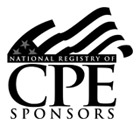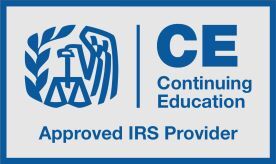

View Details/Register
View Details/Register
View Details/Register
View Details/Register
View Details/Register
View Details/Register
View Details/Register
View Details/Register
View Details/Register
View Details/Register



CPA - small firm
CPA - medium firm
CPA - large firm
Enrolled Agent
Small Business Owner
On June 6, 2024, the U.S. Supreme Court issued a unanimous opinion in Connelly v. United States, U.S., No. 23-146, a closely held business valuation case that will have a significant impact on many families and closely held businesses. The case addressed the valuation of stock in a closely held business. It held that the obligation of an entity to buy a deceased equity owner’s shares does not reduce the value of the insurance proceeds received by the entity to fund the buyout.
The Supreme Court’s ruling resolves the conflict between the Connelly case and Estate of Blount v. Commissioner, which had reached the opposite conclusion. In this webinar, we will discuss the Connelly decision, along with the following learning objectives.
Learning Objectives:
- Recognize what practitioners should tell clients based on this new information
- Identify if every redemption agreement will be adversely affected
- Evaluate whether redemption agreements should be restructured as cross-purchase agreements instead
- Outline if more insurance should be purchased to address potential estate taxes
- Identify how the reduction in the exemption in 2026 may exacerbate the negative repercussions of the Connelly decision

Martin Shenkman
Shenkman Law
Dual Practitioner, Financial Planner
[email protected]
(201) 845-8400
Martin M. Shenkman, CPA, MBA, PFS, AEP (distinguished), JD, is an attorney in private practice in Fort Lee, New Jersey, and New York City, New York, with Shenkman Law. His practice focuses on estate and tax planning as well as planning for closely-held businesses and estate administration. Throughout his career, Mr. Shenkman received awards and acknowledgments from the New Jersey Bar Association, Worth Magazine, CPA Magazine, the American Cancer Society, and the AICPA. Mr. Shenkman holds a Bachelor of Science from the Wharton School at the University of Pennsylvania, an MBA from the University of Michigan, a law degree from Fordham University School of Law. He is admitted to the bar in New York, New Jersey, and Washington D.C.

Robert Keebler, CPA/PFS, MST, AEP (Distinguished), CGMA
Keebler & Associates, LLP
Partner
[email protected]
(920) 593-1701
Robert S. Keebler, CPA/PFS, MST, AEP (Distinguished), CGMA is a partner with Keebler & Associates, LLP, and the current chairman of the AICPA Advanced Estate Planning Conference. In 2007 he was inducted into the Estate Planning Hall of Fame of the National Association of Estate Planners & Councils. CPA Magazine has also named him one of the top 100 most influential practitioners in the United States and one of the top 40 tax advisors to know during a recession. His practice includes family wealth transfer and preservation planning, charitable giving, retirement distribution planning, and estate administration.
Mr. Keebler frequently represents clients before the National Office of the Internal Revenue Service (IRS) in the private letter ruling process and estate, gift, and income tax examinations and appeals. He has received more than 200 favorable private letter rulings, including several key rulings of “first impression.”
He is the author of over 100 articles and columns and is the editor, author, or co-author of many books and treatises on wealth transfer and taxation. Mr. Keebler has been a speaker at national estate planning and tax seminars for over 20 years, including the AICPA’s: Estate Planning, High Income, Advanced Financial Planning Conferences, ABA Conferences, NAPEC Conferences, The Notre Dame Estate Planning Conference, and the Heckerling Estate Planning Institute.

Mitchell Gans
Hofstra Law
Professor of Law
[email protected]
Professor Mitchell M. Gans is the Steven A. Horowitz distinguished professor in taxation at Hofstra University School of Law, and an Adjunct Professor of Law at NYU Law School. He is an Academic Fellow at ACTEC and is the Academic Editor of the ACTEC Journal. Professor Gans is a leading scholar in the estate-and-gift tax area, teaching courses for the IRS on estate and gift tax and valuation methodology. He is a frequent lecturer for ALI-ABA, NYU, ACTEC, the ABA, and other groups and has written numerous articles on estate tax planning topics.

Jonathan Blattmachr
Pioneer Wealth Partners
Senior Advisor
[email protected]
(212) 328-0300
Jonathan Blattmachr is a Principal in Pioneer’s estate planning advisory group. He brings over 35 years of experience in trusts and estates law. He is a retired member of Milbank Tweed Hadley & McCloy and the Alaska, California, and New York Bars. Jonathan has been recognized as one of the country’s most creative trusts and estates lawyers. He writes and lectures extensively on estate and trust taxation and charitable giving and has authored or co-authored six books and over 500 articles on estate planning topics. He has served as a lecturer-in-law of the Columbia University School of Law and as an Adjunct Professor of Law at New York University Law School in its Masters in Tax Program (LLM). He is a former chairperson of the Trusts & Estates Law Section of the New York State Bar Association and of several committees of the American Bar Association. Jonathan is a Fellow and a former Regent of the American College of Trust and Estate Counsel and past chair of its Estate and Gift Tax Committee. Among professional activities, which are too numerous to list, Jonathan has served as an Advisor on The American Law Institute, Restatement of the Law, Trusts 3rd, and as a Fellow and Director of The New York Bar Foundation and as a Fellow of the American Bar Foundation.
Jonathan graduated from Columbia University School of Law cum laude, where he was recognized as a Harlan Fiske Stone Scholar. He received his A.B. degree from Bucknell University, majoring in mathematics. He served as an officer in the United States Army from 1970 to 1972 and was awarded the Army Commendation Medal.
- To receive CPE credit, you must register for the webinar before it starts.
- CPE is available to all eligible participants within 24 hours of each webinar.
- To receive CPE for multiple attendees, at least one person must sign up for the webinar. The post-webinar email contains a link to instructions for the proctor letter. Alternatively, you may log in to your account following the webinar and click on the MY ACCOUNT button to find a link to instructions. For paid courses, payment needs to be made for each attendee before credit will be issued.

NASBA Approved
CPAacademy.org (Sponsor Id#: 111889) is registered with the National Association of State Boards of Accountancy (NASBA) as a sponsor of continuing professional education on the National Registry of CPE Sponsors. State boards of accountancy have final authority on the acceptance of individual courses for CPE credit. Complaints regarding registered sponsors may be submitted to the National Registry of CPE Sponsors through its website: www.nasbaregistry.org.
CPAacademy.org 1685 S. Colorado Blvd, Suite #205, Denver, CO 80222

EA Approved
CPAacademy.org (Sponsor Id#: HURS9) has entered into an agreement with the Internal Revenue Service, to meet the requirements of 31 Code of Federal Regulations, section 10.6(g), covering maintenance of attendance records, retention of program outlines, qualifications of instructors, and length of class hours. This agreement does not constitute an endorsement by the IRS as to the quality of the program or its contribution to the professional competence of the enrolled individual. Credit earned by attendees with a PTIN will be reported directly to the IRS as required of all providers. To ensure your CPE hours are reported, update your profile in My Account to include your PTIN number. Please note: IRS CE is only mandatory for EAs and ERPAs. For all other tax return preparers, CE is voluntary.
CPAacademy.org 1685 S. Colorado Blvd, Suite #205, Denver, CO 80222







